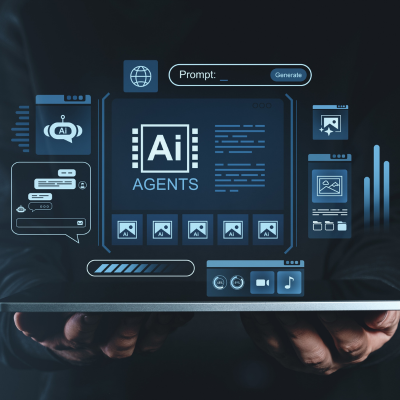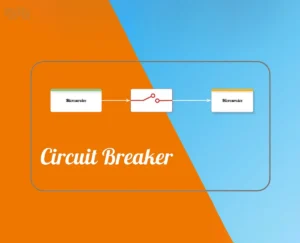Mastering Agentic and Generative AI: Essential Software Engineering Skills for 2025 and Beyond
The software engineering landscape in 2025 is undergoing a profound transformation driven by rapid advancements in Agentic AI, Generative AI, and cloud-native architectures. Success now demands more than traditional coding skills, it requires mastering a sophisticated blend of AI expertise, scalable system design, ethical frameworks, and collaborative agility. Engineers who can architect and deploy autonomous, generative AI-powered applications at scale will lead innovation and deliver tangible business impact. For those seeking to excel, enrolling in a Generative AI course in Mumbai with placements offers a practical pathway to acquire these in-demand skills and secure career growth.
This article explores the critical skills shaping software engineering today, including the latest frameworks, deployment strategies, and real-world lessons. By focusing on the interplay between Agentic and Generative AI technologies, we provide actionable insights for software engineers, architects, and technology leaders preparing for the AI-driven future. Professionals looking for the best Agentic AI course with placement guarantee will find that mastering these competencies positions them for success in a competitive job market.
Understanding Agentic and Generative AI: The New Paradigm
Agentic AI represents autonomous intelligent systems capable of perceiving their environment, reasoning about complex tasks, and acting independently to achieve specified goals. Unlike traditional AI, which often performs narrowly defined tasks, Agentic AI agents orchestrate workflows, integrate multiple AI models, and interact with external systems with minimal human intervention.
Generative AI, powered by large language models (LLMs) such as GPT-4 and beyond, excels at creating new content, ranging from natural language text and source code to images and structured data. These models have revolutionized software development by automating code generation, debugging assistance, and design ideation.
The convergence of these technologies means modern software engineers must design systems where autonomous agents leverage generative models dynamically to solve complex problems. This requires deep understanding of multi-agent orchestration, prompt engineering, and reliable AI system architectures. Recent advances in foundation model fine-tuning methods, such as Low-Rank Adaptation (LoRA) and Parameter-Efficient Fine-Tuning (PEFT), allow engineers to customize large models efficiently for domain-specific tasks, enhancing performance without prohibitive costs. Professionals pursuing advanced generative AI courses gain hands-on experience with these cutting-edge techniques to stay ahead.
Cutting-Edge Frameworks, Tools, and Deployment Strategies
To lead in 2025, software engineers must master a diverse ecosystem of tools and frameworks that enable scalable AI application development and deployment:
- LLM Orchestration and Autonomous Agent Platforms: Platforms like LangChain, AutoGPT, and Microsoft’s Semantic Kernel enable chaining multiple LLM calls, integrating APIs, and managing complex workflows autonomously. Mastery of these platforms involves designing robust agent coordination patterns, handling asynchronous calls, and implementing fallback and error recovery mechanisms. Integrating knowledge from a Generative AI course in Mumbai with placements can provide practical exposure to these platforms.
- Advanced MLOps for Generative AI: The rise of generative models demands MLOps pipelines that support continuous training, domain-specific fine-tuning, version control, and post-deployment monitoring. Tools such as Weights & Biases, MLflow, and Kubernetes operators tailored for AI workloads help maintain reproducibility, scalability, and performance. Emerging trends include continuous evaluation, explainability dashboards, and AI safety monitoring to detect drift and bias dynamically. Training in the best Agentic AI course with placement guarantee covers these essential MLOps strategies.
- Cloud-Native and Edge AI Infrastructure: Engineers must deploy AI systems on cloud platforms (AWS, Azure, GCP) leveraging GPU and TPU acceleration, distributed training, and serverless inference. Expertise in container orchestration with Kubernetes, hybrid cloud strategies, and edge deployment is increasingly critical to meet latency and privacy requirements. Cost optimization through autoscaling and spot instances is also vital. Such infrastructure skills are integral to advanced generative AI courses designed for career advancement.
- AI-Enhanced Development Tools: AI-powered IDE plugins, code review assistants, and automated testing frameworks accelerate development velocity and improve code quality. Familiarity with tools like GitHub Copilot, TabNine, and AI-driven static analysis is essential.
- Secure and Compliant AI Pipelines: With heightened regulatory scrutiny, embedding privacy and security into AI workflows is non-negotiable. Engineers should apply differential privacy techniques, use frameworks like TensorFlow Privacy, and implement robust audit trails. Awareness of AI-specific attack vectors, such as prompt injection, model inversion, and poisoning, and mitigation strategies is crucial.
Engineering Scalable and Reliable AI Systems
Building AI systems that perform reliably at scale requires software engineering rigor beyond AI expertise:
- Distributed Systems and Fault Tolerance: AI workloads demand architectures that handle massive compute and data throughput with resilience. Engineers must design for load balancing, eventual consistency, graceful degradation, and automatic failover.
- Data Engineering Excellence: Managing high-volume, high-velocity datasets for training and inference requires building data pipelines ensuring quality, lineage, and real-time processing. Tools like Apache Kafka, Apache Beam, and Delta Lake are often employed.
- Continuous Integration and Deployment (CI/CD) for AI: Automating model retraining, validation, deployment, and rollback is essential to minimize performance drift and maintain production stability. Integration with traditional software CI/CD pipelines and automated testing for AI models is an emerging best practice.
- Monitoring, Observability, and Fairness Audits: Implementing detailed telemetry for AI outputs, latency, resource usage, and fairness metrics enables proactive detection of anomalies and compliance adherence. Solutions like Prometheus, Grafana, and AI-specific monitoring platforms provide actionable insights.
- Robust Testing Strategies: Beyond unit and integration tests, AI systems require validation against adversarial inputs, bias detection, and edge cases. Combining software testing with model evaluation techniques ensures robustness.
Reinforcing Software Engineering Fundamentals
Traditional software engineering best practices remain foundational, amplified by AI complexity:
- Modular, Maintainable Architecture: Designing clear abstractions and interfaces allows AI components to evolve independently and integrate seamlessly into larger systems.
- Version Control and Collaboration: Git workflows, rigorous code reviews, and comprehensive documentation foster team alignment and code quality.
- Security-First Development: Threat modeling must include AI-specific risks such as data leakage and adversarial attacks. Secure coding and access controls protect intellectual property and user privacy.
- Ethics and Compliance: Embedding ethical considerations and regulatory requirements like GDPR and AI-specific legislation early in the development lifecycle is mandatory. Tools like IBM AI Fairness 360 and Google’s What-If Tool support fairness and transparency assessments.
Cross-Functional Collaboration: The Key to AI Project Success
AI projects succeed when diverse teams, software engineers, data scientists, product managers, compliance officers, and business stakeholders, collaborate effectively:
- Shared Language and Aligned Goals: Bridging terminology gaps and aligning on KPIs ensures AI initiatives deliver measurable business value.
- Integrated Workflows and Tools: Collaborative platforms combining code repositories, data sets, experiment tracking, and feedback loops accelerate iteration and innovation.
- Culture of Continuous Learning: Teams must stay abreast of AI advances, share knowledge openly, and foster resilience in a rapidly evolving landscape.
Measuring AI Impact: Analytics and Monitoring
Quantifying AI system success requires multi-dimensional metrics:
- Business Metrics: Track customer engagement, conversion rates, operational efficiency, and cost savings attributable to AI features.
- Technical Metrics: Monitor model accuracy, latency, throughput, error rates, and resource consumption in production.
- Fairness and Bias Audits: Conduct regular assessments to identify and mitigate unintended discriminatory behaviors.
- User Feedback Loops: Implement human-in-the-loop systems to continually refine AI outputs and improve user satisfaction.
Case Study: Scaling GPT-4 for Enterprise Customer Support
OpenAI’s deployment of GPT-4 in customer support automation exemplifies integrating Agentic and Generative AI with robust software engineering:
- Technical Challenges: Scaling GPT-4 inference with low latency under heavy load, orchestrating multi-turn conversations, and seamless CRM integration.
- Deployment Strategies: Utilized Kubernetes for container orchestration, auto-scaling GPU clusters, and MLOps pipelines enabling continuous model updates.
- Cross-Functional Collaboration: Close coordination among engineers, linguists, product owners, and compliance teams ensured response quality, privacy, and regulatory adherence.
- Business Outcomes: Achieved a 40% reduction in average resolution times, boosted customer satisfaction scores, and lowered operational costs. This case underscores how mastering AI orchestration, cloud-native deployment, and rigorous monitoring drives transformative business results. Professionals aiming to replicate such successes benefit greatly from enrolling in the best Agentic AI course with placement guarantee, which emphasizes real-world applications.
Actionable Recommendations for Software Engineers
- Develop Full-Stack AI Expertise: Gain hands-on skills in programming, data engineering, cloud infrastructure, AI model fine-tuning, and deployment. Participating in a Generative AI course in Mumbai with placements can accelerate this learning curve.
- Prioritize Advanced MLOps: Automate data ingestion, training, validation, deployment, and monitoring to ensure reliability at scale.
- Master Prompt Engineering: Learn to craft effective prompts that maximize generative model performance and reduce errors.
- Embrace Cross-Disciplinary Collaboration: Cultivate communication skills to work effectively with diverse stakeholders.
- Stay Abreast of Emerging Tools: Regularly explore innovations like LangChain, Haystack, BentoML, and new MLOps frameworks through advanced generative AI courses.
- Embed Ethical AI Practices: Integrate fairness, transparency, privacy, and compliance from project inception.
- Engage in Real-World Projects: Build practical experience through open source or enterprise initiatives involving generative and agentic AI.
Why Our Software Engineering, Generative AI, and Agentic AI Course Stands Apart
Our course uniquely combines deep, practical expertise at the intersection of software engineering and advanced AI technologies, offering:
- Hands-On Training with Leading Tools: Master LLM orchestration, autonomous agent frameworks, and cloud-native MLOps pipelines.
- Industry-Proven Case Studies: Learn from deployments at scale, including lessons from top AI innovators.
- Cross-Functional Leadership Skills: Prepare to lead AI projects that span engineering, data science, product, and compliance.
- Ethics and Regulatory Insight: Understand global AI governance frameworks and build responsible, compliant systems.
- Career-Focused Curriculum: Designed for software engineers, CTOs, and AI practitioners aiming to future-proof their careers in an AI-driven world. This makes it the best Agentic AI course with placement guarantee available. Enrolling in a Generative AI course in Mumbai with placements ensures you gain not only knowledge but also the career support to thrive.
Frequently Asked Questions (FAQs)
Q1: Which programming languages are essential for AI engineering in 2025?
Python remains the dominant language for AI and data science workflows. JavaScript is vital for front-end and full-stack roles. Emerging languages like Go and Rust are preferred for performance-critical and systems-level AI components.
Q2: How critical is cloud computing expertise for AI engineers?
Extremely. Cloud platforms provide scalable, flexible infrastructure for training and deploying AI models. Proficiency with AWS, Azure, or Google Cloud, including GPU/TPU management and serverless architectures, is indispensable.
Q3: What differentiates Agentic AI from traditional AI?
Agentic AI systems autonomously perceive, plan, and act to achieve complex goals, often coordinating multiple AI models and external APIs. Traditional AI tends to be task-specific and reactive without autonomous goal management.
Q4: How does MLOps for generative AI differ from traditional MLOps?
Generative AI requires specialized MLOps practices for managing large-scale transformer models, continuous fine-tuning, versioning complex outputs, and monitoring nuanced performance metrics beyond classification accuracy.
Q5: Can software engineers without a data science background transition into AI roles?
Yes. Practical engineering skills, system design, and familiarity with AI frameworks enable engineers to bridge gaps without deep data science expertise. Lifelong learning and hands-on projects are key.
Q6: What are common challenges in deploying AI systems at scale?
Challenges include managing distributed infrastructure, ensuring model reliability, monitoring for bias and fairness, securing data and models against attacks, and complying with evolving regulations.
Q7: How does your course compare to other AI engineering programs?
Our course integrates Agentic and Generative AI with rigorous software engineering best practices, emphasizing deployment at scale, cross-functional collaboration, and ethical AI, areas often underrepresented in competing programs. It is recognized as the best Agentic AI course with placement guarantee.
Final Thoughts
The future of software engineering lies in mastering the fusion of traditional coding expertise with advanced Agentic and Generative AI capabilities. Engineers who adopt cutting-edge frameworks, cloud-native deployment strategies, and collaborative workflows will drive the next wave of AI innovation. By embedding robust MLOps, security, compliance, and ethical practices, they will build scalable, reliable AI systems that deliver meaningful business impact.
For professionals eager to accelerate their journey, enrolling in a specialized Generative AI course in Mumbai with placements focused on software engineering for Generative and Agentic AI offers a decisive advantage. This investment equips you with the knowledge and hands-on experience necessary to thrive in the AI-driven era ahead, making it among the advanced generative AI courses that best prepare candidates for the future.










